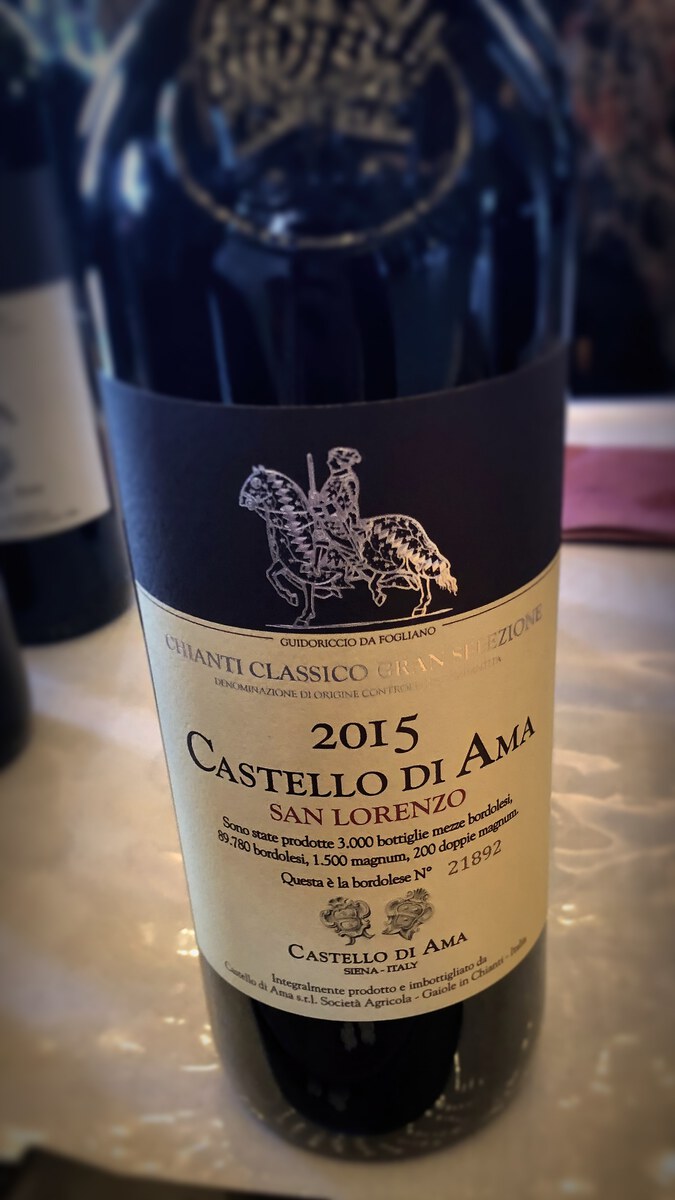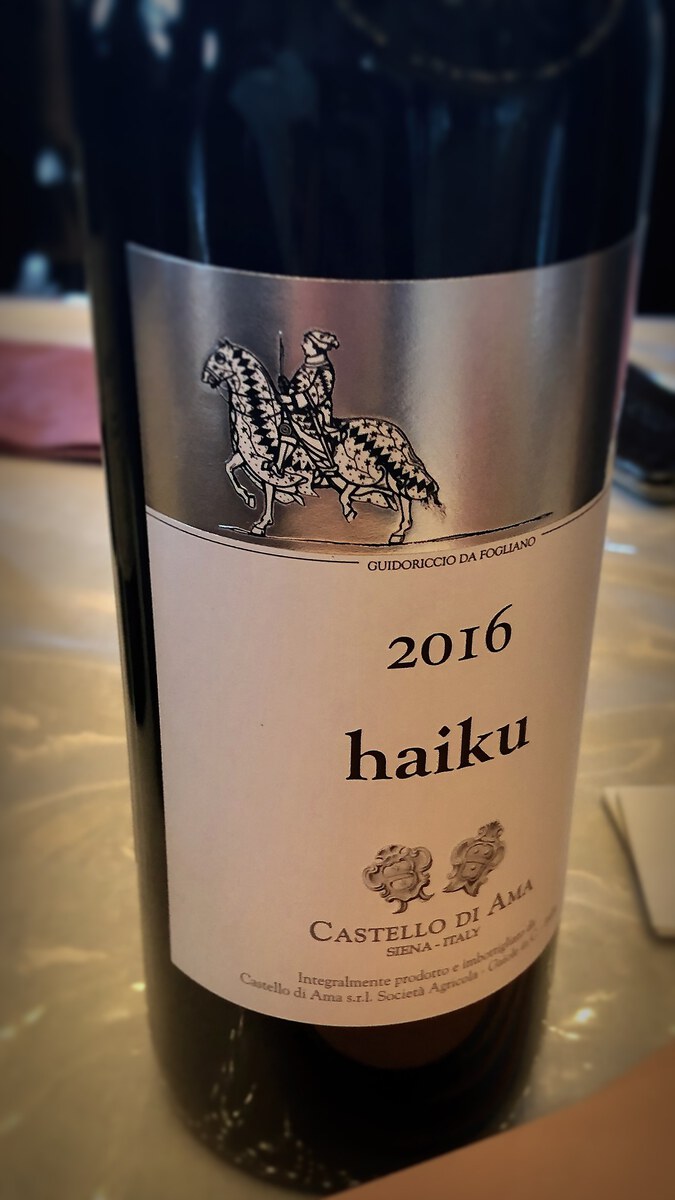Castello di Ama "San Lorenzo" 2015
Blend of Sangiovese / Merlot / Malvasia NeraVersatile and elegant. Cherries and berries, dried violets.
Tasting Notes
This Chianti Classico opens on the nose with cherry and dark berry note. More evolved notes come through later with dried violets and a hint of leather.
On the palate the 2015 San Lorenzo from Castello di Ama is elegant.
A versatile Chianti Classico that I would be tempted to try this bottle again in 6 to 8 years.

|
|
Castello di Ama |
|
|
San Lorenzo |
|
|
Red & Still |
|
|
Italy |
|
|
Toscana |
|
|
Sangiovese, Merlot, Malvasia Nera |
|
|
2015 |
|
|
Learn more
Castello di Ama
Castello di Ama is a relatively young winery in Chianti Classico. That is, even if the estate makes wine since the 1970s!
At Ama they produce beautiful wine following the lead of a Bordeaux trained oenologist.
But this winery wants to offer more than wine. As true Italians they transformed the castle and what they do into art. They partnered with several international artists who got inspired by the estate and the landscape. Their pieces are all around Ama winery and open to the public all year around. Visiting Ama is more than wine tasting then. It’s a walk through an unusual contemporary art gallery.
Link to here...Wines Related To Castello di Ama
Castello di Ama "Haiku" 2016
Vibrant and complex. Berries, nutmeg and sandal wood.
Sangiovese
Wine making grape
Sangiovese is a red Italian wine grape variety named after the Latin sanguis Jovis, which means “Jupiter’s blood.” Though it is native to most of central Italy, from Romagna to Lazio, Campania, and Sicily, it is best known outside of Italy as the sole component of Brunello di Montalcino and Rosso di Montalcino, as well as the primary component of the blends Chianti, Carmignano, Vino Nobile di Montepulciano, and Morellino di Scansano, though it can also be used to make varietal wines like Sangiovese di Romagna
Link to here... | Derived from 'Sangiovese' on WikipediaMerlot
Dark blue-colored variety of wine-making grape
Merlot is a dark blue–colored wine grape variety that can be used to produce both blending and varietal wines. Merlot is thought to be a diminutive of merle, the French word for a blackbird, which is most likely a reference to the grape’s color. Merlot is a common grape for blending with the sterner, later-ripening Cabernet Sauvignon, which appears to be higher in tannin, due to its softness and “fleshiness” combined with its earlier ripening.
Link to here... | Derived from 'Merlot' on Wikipedia

